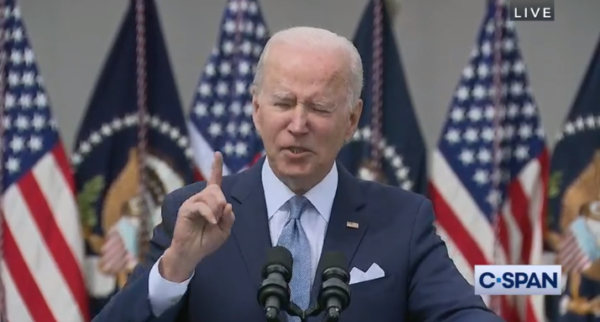
Nearly three-fourths of likely U.S. voters believe President Joe Biden should debate his Democrat party challengers on national television, according to the latest Rasmussen survey.
Biden, showing increasing signs of being infirm, is being challenged so far by Robert F. Kennedy, Jr. and Marianne Williamson. Biden still leads the trio in popularity, the veteran polling firm revealed.
Rasmussen is reporting that only 17 percent of likely voters do not believe Biden should enter into a debate with either challenger.
“Seventy-five percent (75%) of all voters say it’s likely they will vote in the 2024 Democratic presidential primaries,” Rasmussen reported Thursday. “This includes 63 percent who say it’s Very Likely. Among those who say it’s Very Likely they’ll vote in next year’s Democratic primaries, 45 percent would vote for Biden and 22 percent would vote for Kennedy.”
Another 22 percent would prefer some other candidate, and apparently Williamson doesn’t even get much attention.
The survey of 999 U.S. Likely Voters was conducted on June 4-6, by Rasmussen Reports with a margin of sampling error at +/- 3 percentage points with a 95% level of confidence.
Some other revelations in the survey include 73 percent of Democratic voters think Biden should debate his challengers, as do 78 percent of Republicans and 72 percent of independent voters.
“If the Democratic presidential primary were held today,” Rasmussen said, “67 percent of Democrats would vote for Biden, 17 percent would vote for Kennedy, two percent (2%) would vote for Williamson, and six percent (6%) say they’d vote for some other candidate.”
Another interesting thing Rasmussen’s survey found is that “more men (78%) than women voters (71%) believe Biden should debate his Democratic challengers.” Also, there’s a generational gap as survey respondents under 40 “are more likely than their elders to prefer Biden in the 2024 primaries, and less likely to think Biden should debate his Democratic challengers.”
Rasmussen’s daily presidential tracking poll shows that 44 percent of likely voters approve of his job performance, while 54 percent do not. However, narrowing things down, only 26 percent “strongly approve” of his work and 45 percent “strongly disapprove.”